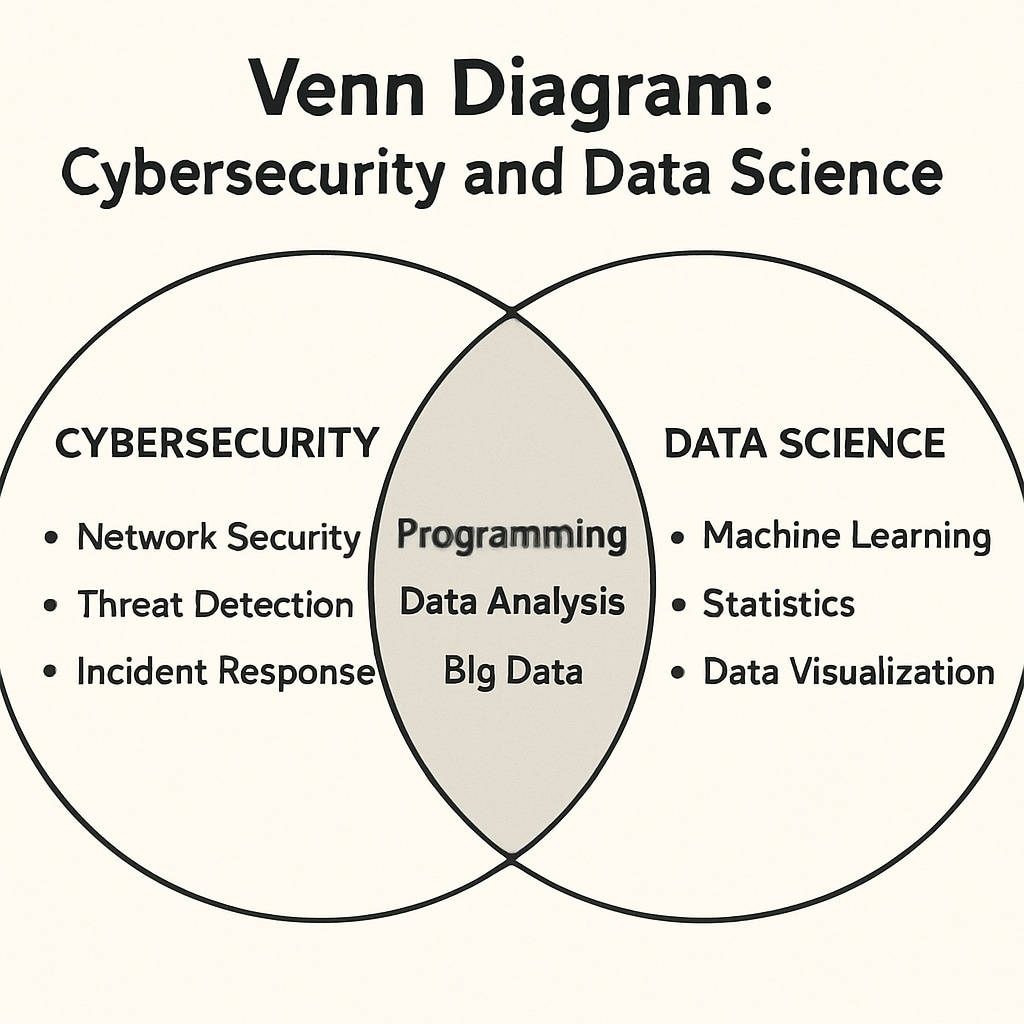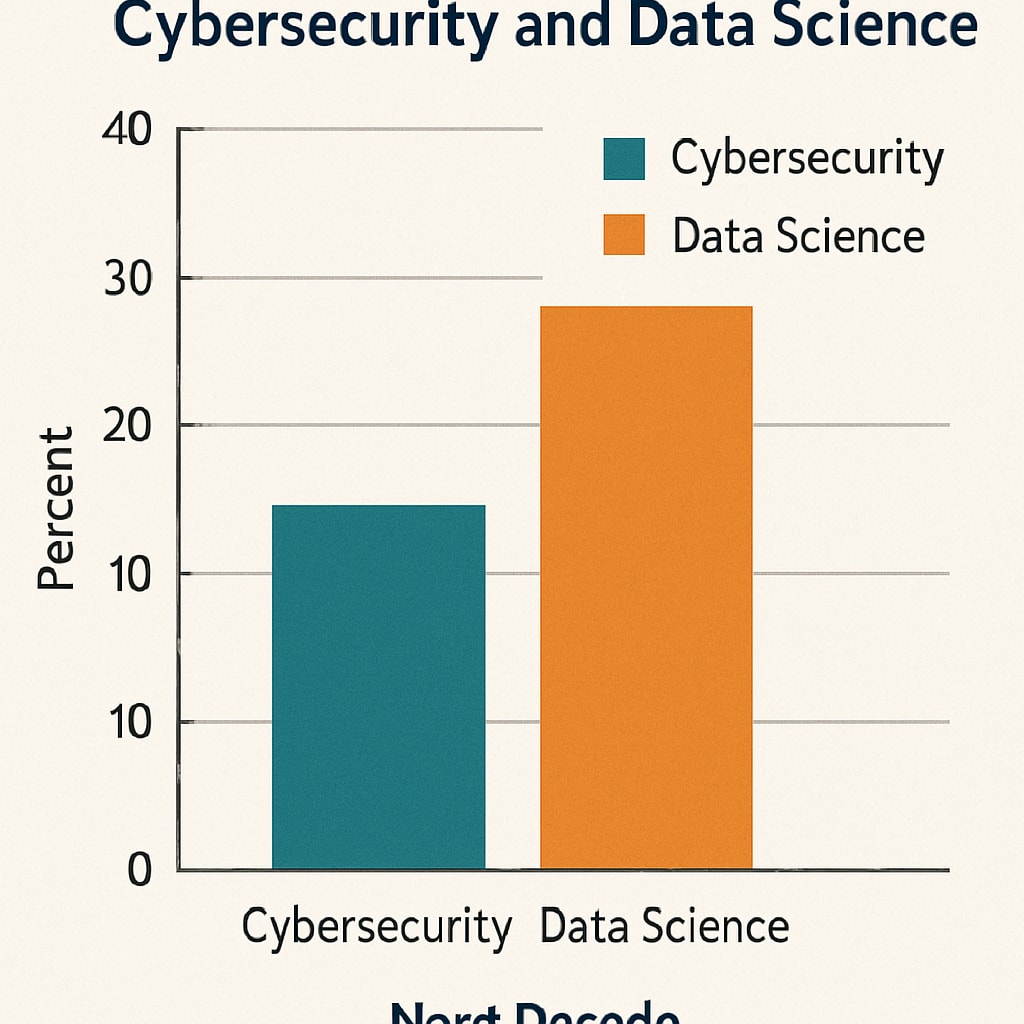In today’s digital landscape, choosing a career path in technology can be both exciting and daunting for K12 students. Among the most in-demand fields, cybersecurity and data science engineering stand out as promising options. Both offer robust career opportunities, but they require distinct skill sets and cater to different interests. This article explores how educators and parents can guide students to make an informed decision about their future in these two dynamic fields, comparing their unique characteristics, career trajectories, and the competencies they develop.
Understanding Cybersecurity and Data Science
Before diving into career planning, it’s essential to understand what cybersecurity and data science entail. Cybersecurity focuses on protecting systems, networks, and data from digital threats. It involves tasks like risk assessment, threat detection, and implementing security protocols. On the other hand, data science revolves around analyzing and interpreting complex data sets to derive actionable insights. It combines statistical analysis, machine learning, and data visualization to solve real-world problems.

While both fields involve technology, their goals differ significantly. Cybersecurity is about defense and prevention, while data science emphasizes discovery and innovation. These distinctions can help students align their natural talents and interests with a suitable career path.
Career Prospects and Industry Demand
One of the most important factors in career planning is understanding the job market and long-term prospects. Cybersecurity professionals are in high demand due to the growing number of cyber threats. According to Britannica, global spending on cybersecurity is projected to reach $1 trillion by the end of the decade, creating a wealth of job opportunities in areas like ethical hacking, security analysis, and cryptography.
Similarly, data science has emerged as a leading field, with companies across industries relying on data-driven decision-making. As reported by Wikipedia, data science jobs have grown by over 650% since 2012, with roles such as data analyst, machine learning engineer, and business intelligence specialist becoming increasingly popular.

Both fields offer lucrative salaries and growth opportunities, but choosing between them depends on a student’s interests and aptitude. Cybersecurity might appeal more to those who enjoy problem-solving and safeguarding digital environments, while data science could attract students interested in mathematics and uncovering trends through data.
Skills and Education Requirements
The pathways to becoming a cybersecurity or data science professional differ in terms of skills and education. Cybersecurity requires knowledge of networking, programming, and risk management. Certifications like Certified Information Systems Security Professional (CISSP) or Certified Ethical Hacker (CEH) can boost job prospects. Schools can introduce foundational courses in computer science and digital safety to spark interest in cybersecurity early on.
Data science, on the other hand, demands a strong foundation in mathematics, statistics, and programming languages like Python and R. Students interested in this field should explore courses in algebra, calculus, and data analysis during their K12 years. Encouraging participation in coding boot camps or machine learning workshops can also be beneficial.
How K12 Educators and Parents Can Help
Guiding students to make the right career choice requires a collaborative effort between educators and parents. Schools can organize career days featuring professionals from both fields, giving students a firsthand look at what these careers entail. Additionally, offering elective courses in cybersecurity and data science can help students gain practical skills and determine their interests.
Parents can support this exploration by encouraging extracurricular activities like coding competitions, online courses, or internships. For example, platforms like CyberPatriot offer cybersecurity challenges for high school students, while Kaggle hosts data science competitions suitable for beginners.
In addition, fostering soft skills such as critical thinking, problem-solving, and effective communication is vital. These abilities are transferable and will serve students well in any career they choose.
Conclusion: Finding the Right Fit
As the digital age continues to evolve, both cybersecurity and data science engineering present exciting career opportunities for K12 students. By understanding the unique characteristics of each field, their future prospects, and the required skills, educators and parents can play a crucial role in guiding students toward a fulfilling career path. Ultimately, the choice between cybersecurity and data science should align with a student’s passions, strengths, and long-term goals.
In summary, whether defending against cyber threats or unlocking insights from data, the journey begins with informed guidance and early exposure to these cutting-edge fields. Preparing students today ensures they thrive in the careers of tomorrow.


